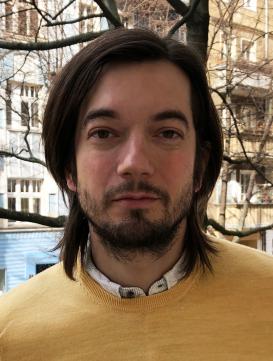
[Title]
Making Sense of Virtual Pasts. A Reverse Engineering Approach to Study the Sonic Foundations of Culture
[Abstract]
In this talk we are going to review a case study on antique public assemblies which have been virtually reconstructed as audiovisual sceneries in order to study the spatial and participatory dimension of Roman and Greek political culture. This project was part of the Image Knowledge Gestaltung Cluster of Excellence at HU Berlin conducted by an interdisciplinary team from Classical Archaeology, Virtual Acoustics, Game Studies, and Cultural History & Theory. We will use this audiovisual reconstruction as the point of departure and ask for the relation between virtual and physical sonic surroundings. What do we learn about assumptions and concepts of how we make sense of our acoustic environment when we analyse the models and techniques that are exploited to (re-)construct virtual sonic spaces? This reverse engineering approach might highlight the historicity of listening which is more familiar to sound history but also problematise a mediality of listening beyond the analogue-digital divide. It might also challenge or reinvigorate ecological approaches to sound from a virtual sonic standpoint. Drawing on these analytical outcomes we will discuss the Sonic as concept to grasp a certain formation of sonic cultures which we will try to describe as »sense-cultures« – as Erich Hörl has put it in the felicitous German ambiguity of »Sinnkultur« (2013) oscillating between sense and meaning. In this way we will discuss the options of such an approach to foreground the modes of knowledge production as a form of sonic thinking.
[About]
Sebastian Schwesinger was awarded his Masters in cultural history and theory by the Humboldt-Universität zu Berlin in 2013, with a thesis on pirate economies as an example of cultural practices of delegitimated appropriation. His doctoral project investigates the media history of virtual acoustics. He is a research associate at the Chair of Cultural Techniques and History of Knowledge (Prof. Christian Kassung) at the Department of Cultural History and Theory, Humboldt-Universität zu Berlin. Since 2015, he has coordinated the project “Auralization of Archaeological Spaces” at the Image Knowledge Gestaltung Cluster of Excellence. His interests include sound studies (especially sonic modes of thinking and reasoning), cultural economics, and game studies. Since 2011, he has organized the sound studies colloquium and public lecture series “KlangDenken” (sonic thinking) in Berlin in collaboration with Felix Gerloff.